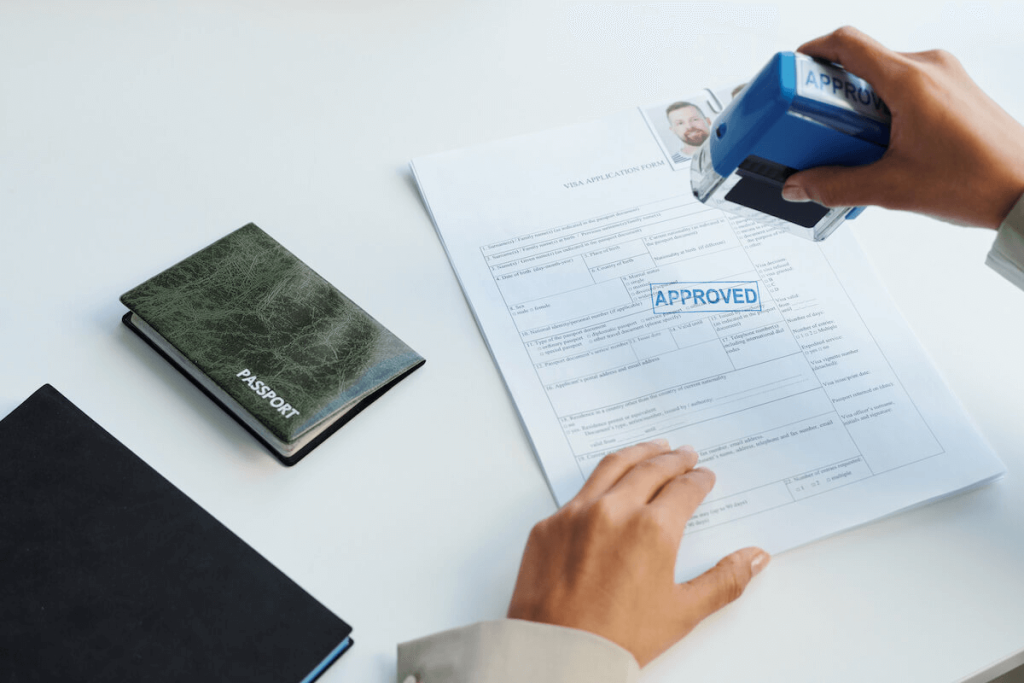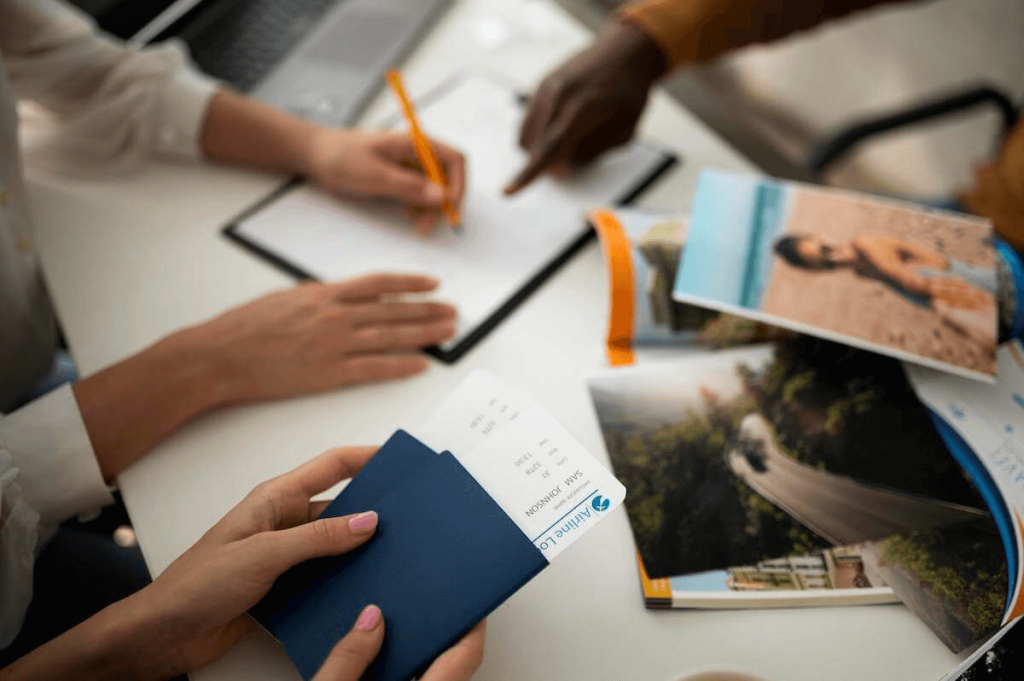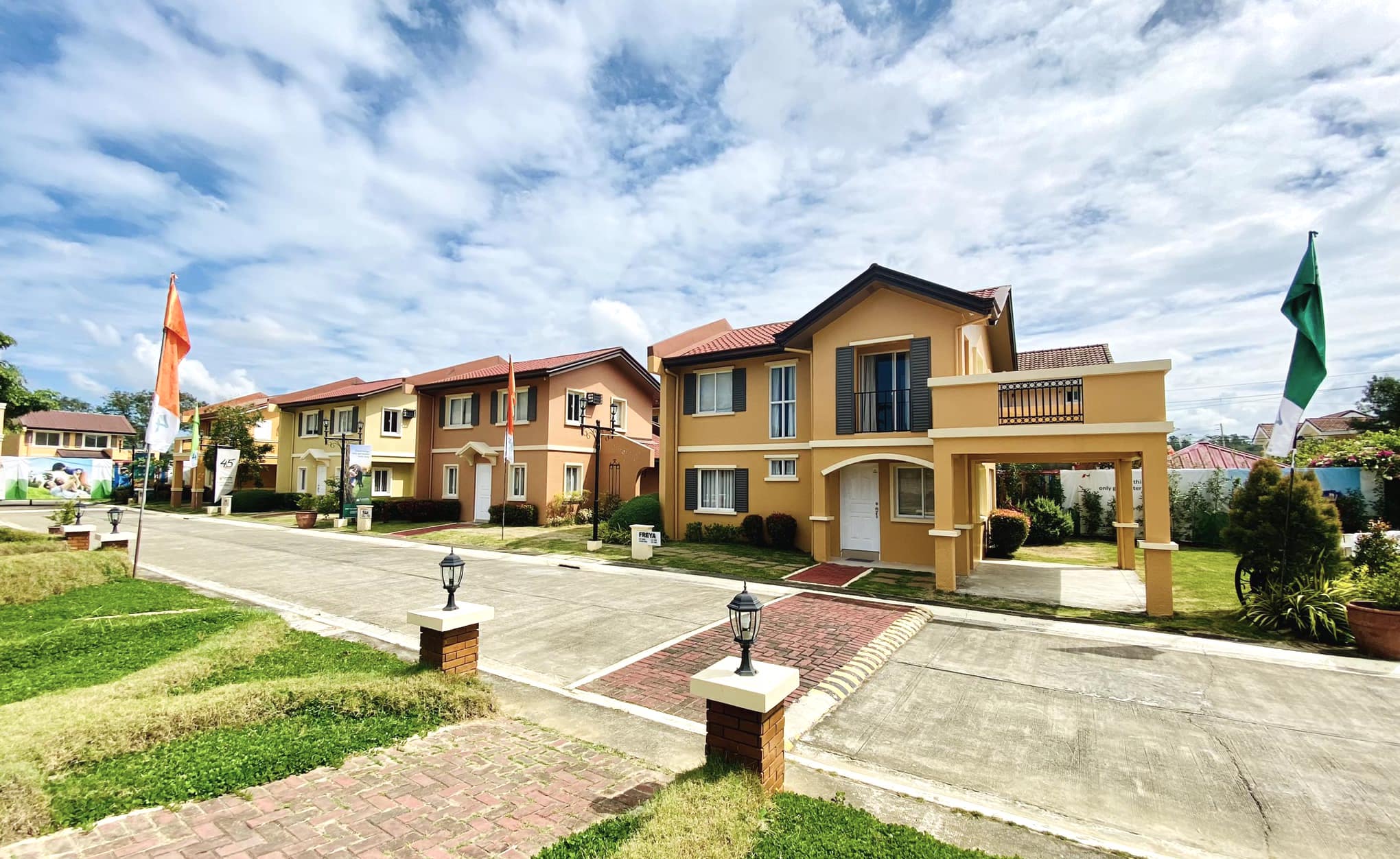
Traveling abroad can be an exciting and enriching experience, but it is essential to prioritize safety during your journeys.
Starting September 3, the revised guidelines for Filipino immigration and travel took effect, intending to fight against human trafficking.
Filipino passengers, whether for leisure or those with employment contracts abroad, must present additional documents to immigration authorities when traveling abroad.
The Inter-Agency Council Against Trafficking (IACAT) said the revised measures were enacted to combat human trafficking to protect Filipino citizens, according to the agency’s press briefing.
Based on a press release seeded to the public, the DOJ clarified that the revised guidelines would mainly apply to first-time travelers, adding that “more than 95% of travelers would only need to present the basic requirements to immigration authorities: passport, boarding pass, confirmed return ticket, and visa (only when required).”
The primary immigration officer (IO) would clear the passenger for departure if they sufficiently established their declared purpose of travel. However, if they cannot adequately explain why they are going abroad, and the immigration officers have reasonable grounds to hold the departing passenger, they will be referred to a secondary inspection and may be asked to provide additional documents before an entry clearance is given.
With these new immigration and travel rules, your adventures have an extra layer of protection, allowing you to be secure. Here are tips on how to make your travels even safer:

Research Your Destination
Gather information about your destination, including local customs, laws, and potential safety concerns. Some cities and countries have specific laws you may need to know. For example, a law prohibits people from sitting on the Trevi Fountain in Italy.
Some laws also prohibit people from standing or selling souvenirs in specific places. These are usually done to protect the country’s culture and heritage, which tourists must follow and respect.
For Filipino migrants to Europe, there is a new set of guidelines for pre-settled status called the EU settlement scheme, which you need to be familiar with. For workers, it is also imperative to establish your salary threshold vis-a-vis the cost of living so you do not find yourself in a precarious situation outside of your country.
Always stay updated on travel advisories and check for specific requirements, such as visas or vaccinations. You can follow your destination’s official social media pages for important announcements.
Secure Important Documents
Make photocopies or digital scans of your travel documents, including passport, ID, travel insurance, and essential documents —store copies separately from the originals long before your set date of departure from the Philippines. Consider discreetly using a travel wallet or pouch with hidden compartments to carry essential documents and money.
For applicants through the skilled worker route, make sure that you have the documents and are able to provide proof of qualifications, all requirements are met and completed, be ready for additional requirements on top of the standard document required, and, more importantly, an open access to potential employers and sponsor to report to in case if encounter some hiccups with immigration. These are important evidence of your juridical entity or legal entity.
Stay Informed About Local Safety
Keep up with local news and be aware of any political or social issues in your destination. While at it, research safe neighborhoods and areas to stay in and avoid known high-crime areas, especially when traveling with family members and minor children.
Understanding potential risks, crime hotspots, and safety protocols allows travelers to make informed decisions, avoid dangerous places, and respond effectively to emergencies.
Awareness of local customs and laws should not be taken for granted, as it also helps prevent unintentional offenses. It is ideal to enjoy your travels with greater peace of mind to enjoy your adventures worry-free.
Purchase Travel Insurance
Invest in comprehensive travel insurance that covers medical emergencies, trip cancellations, and theft. Travel insurance acts as a lifeline, offering assistance and support in times of crisis, making it an essential component of responsible travel and adventure.
Remember to familiarize yourself with the terms and contact information for assistance in case of emergencies and always bring proof of your insurance enlistment.
Register with Your Embassy

Inform your embassy or consulate of your travel plans by registering online or in person. In natural disasters, political unrest, or emergencies, embassy officials can provide critical assistance, including evacuation, medical support, and legal aid, especially if one is a global talent under the labor market.
They can also offer guidance on local conditions, travel advisories, and cultural nuances, enhancing your overall security and understanding of the destination.
Embassy registration ensures that your government knows your whereabouts in the course of your travel and can reach you or your family in case of need, offering a valuable lifeline during unforeseen circumstances while traveling abroad.
If you have nonrelative friends in the country you are staying in, make sure you get in touch with them before your travel — whether for leisure or for a job.
Use Reputable Accommodations
Using reputable accommodations when traveling is essential for a safe and comfortable experience. Book accommodations through trusted websites or reputable travel agencies. Read reviews and check ratings from other travelers to ensure safety and comfort.
Established hotels and lodgings prioritize guest security, offering well-maintained facilities, trained staff, and adherence to safety regulations. Reputable accommodations are less likely to have issues like overcharging or unaddressed grievances. They also provide a reliable point of contact for assistance and information in a foreign country, contributing to peace of mind.
Travel Light and Smart
Pack only what you need to minimize the risk of theft or loss, and try to use luggage with built-in locks or invest in a padlock for added security. It efficiently reduces the risk of lost luggage and minimizes physical strain, making it easier to navigate crowded airports, public transportation, and accommodation with less bulk. Packing light also simplifies security checks, especially in airports.
Stay Vigilant in Crowded Places
Be cautious of pickpockets in crowded areas, such as markets, public transportation, and tourist attractions. Use anti-theft bags and wallets with RFID-blocking technology to protect against electronic theft.
Staying aware of your surroundings, securing belongings, and watching for unusual behavior can prevent potential dangers, especially in cases of layovers when staying at a packed airport is longer required.
Carry an Emergency Kit
Pack a small medical kit with basic supplies such as bandages, pain relievers, and prescription medications. Include a universal travel adapter and portable charger for your devices. You can also add essential items like a flashlight and extra cash.
In unexpected circumstances like accidents, illness, or natural disasters, the emergency kit ensures you can provide immediate care and remain self-sufficient until help arrives.
Stay Connected, But Do It Safely
Connecting with your loved ones while away can reassure them and maintain your emotional bonds. This enables emergency contact in unforeseen situations, such as accidents or medical issues, ensuring quick assistance. Keep a local SIM card or an international roaming plan to stay connected with family, authorities, and nonrelative friends.
Share your itinerary and contact information with a trusted friend or family member. Whether you are traveling as an applicant for a job, for migration, or just for leisure, it is always important that someone is aware of your whereabouts.
That said, be cautious when using public Wi-Fi networks, as they may not be secure. Use a VPN to encrypt your online activity and avoid accessing sensitive accounts, such as online banking, on public computers when possible.
Respect Local Customs and Laws
Familiarize yourself with local customs, etiquette, and laws to avoid inadvertently offending or violating regulations. Follow dress codes and be mindful of cultural sensitivities. Adhering to cultural norms demonstrates appreciation for the host country’s traditions and values, fostering goodwill and reducing misunderstandings.
If you are eligible for a job and have secured an employment contract, it is still important to know the customs of the land. In the case of workers in the care sector, it is important to know the nuances of the country before you even begin physically handling the patient.
Moreover, compliance with local laws avoids legal issues, fines, or imprisonment that can disrupt travel plans. It also showcases cultural sensitivity, enhancing travel experience and promoting responsible tourism.
Keep Emergency Contacts Handy
Carry a list of emergency contacts, including local authorities, your embassy or consulate, and your travel insurance provider. In accidents, illness, or unforeseen emergencies, having accessible emergency contacts ensures quick assistance, be it medical or legal.
Stay Healthy
Prioritize your health during your travels by staying hydrated and following food safety guidelines to avoid illnesses. Carry essential medications and be prepared for potential health-related issues.
Plan Transportation Carefully, and Trust Your Instincts
Use reputable transportation services, and if using rideshares, request for documents that prove the driver’s identity and vehicle details. Avoid traveling at night in unfamiliar areas, and stay aware of your surroundings and the people around you. Trust your instincts and remove yourself if a situation feels uncomfortable or unsafe.
By taking these precautions and staying vigilant, you can enhance your safety while enjoying the adventure of international travel. Remember that being prepared and informed is the key to a safer and more enjoyable journey.
With Camella, your safety and security matters. Their house and lot offerings aim to foster a safe and healthy community for all. To know more, visit us at www.camella.com.ph.

Check out our House and Lot for Sale Properties
Discover our house and lot for sale properties in the Philippines


